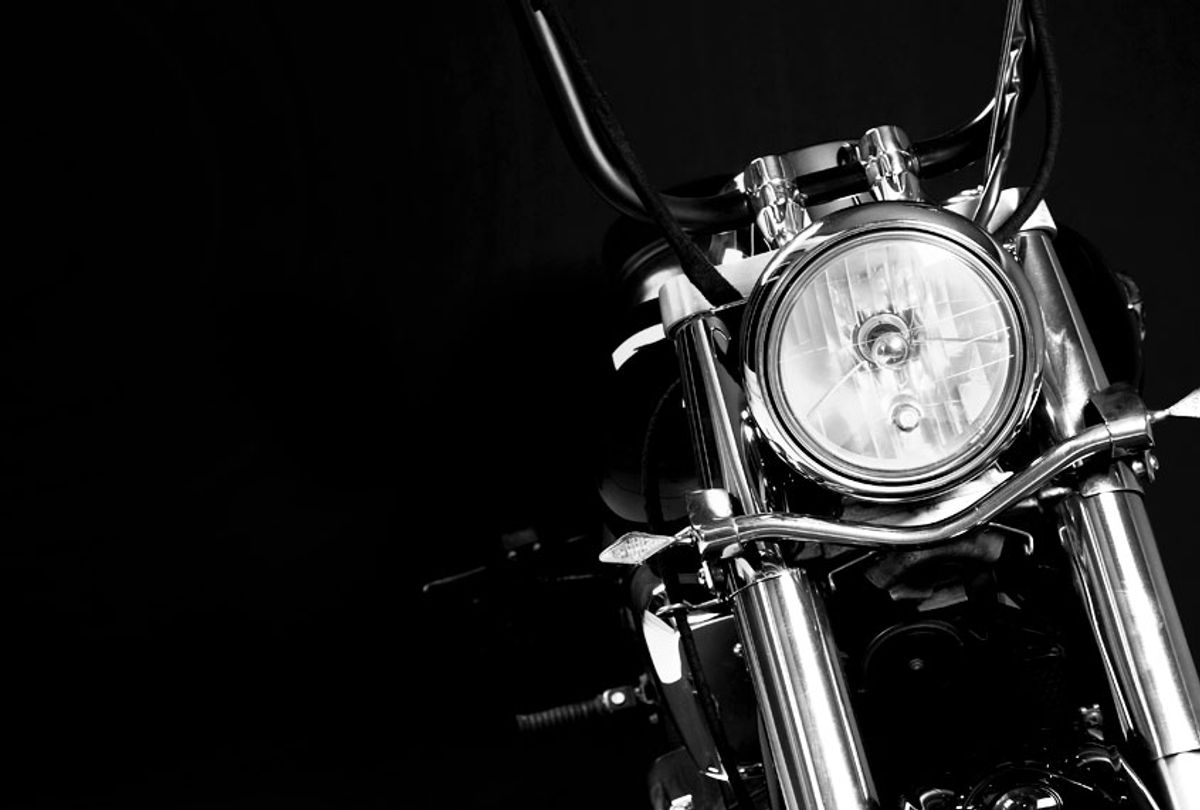I am using Bruce Springsteen, the alleged focus of research for my book project as an excuse to learn how to play guitar. “Excuse” may be too strong — final impetus. Music has always been at the center of my self-medication. I made mix tapes off the radio during a nightly “Eighties at 8” program, listening intently to identify a song within the first few notes and immediately decide whether to push the record button. In sixth grade, I joined the school band as a percussionist. That was about the rhythm; I never considered being a rock star. There were a couple of months in an all-girl band in junior high that covered Joni Mitchell with four-part harmonies. That was about being in a community of girls; I never entertained the idea of being a professional musician.
The urge was always just to make my noise. I learned slide guitar instead, just as I learned to drive on two wheels instead of four. Friends who played guitar, none of whom could play slide, would ask me why I insist on learning everything the hard way. These are the same people who tried to reason me through the ways that bikes were more dangerous than cars. Sure, if you’re a certain type of person, slide is harder and bikes are scarier. I must be some other type of person because I took to both instinctively.
Never played guitar standing up. For nearly a year, my cheap black-on-black lefty Strat knockoff sat untouched in the office. I named her Betty, and Betty and I eyed each other warily across the room for a long time before we sat down together. The first few weeks, I played the proper vertical way. Once I understood how to find the chords, Betty went flat on her back. A few weeks later, I plugged in the amp. Then I started buying slides made of different materials—chrome, brass, glass, porcelain—in different sizes. Nickel thumb picks, then finger picks. Then I realized, playing guitar with slide and pick is like driving a bike with half-finger gloves on. The covered parts of my hands are the ones really impacting the machine, not the fingertips greased up with street grime or the first knuckle joints torn up from sharp strings.
A full year went by and my playing was starting to demonstrate some skill. I ordered an electric lap steel that finally arrived last month. Her name is Ginger, partly in honor of Gingger Shankar, the world’s only female double-violinist. We got to know each other right away, despite the fact that she came strung for a right-handed person. I’m not one to waste a perfectly good set of strings, so I’ve been playing upside down with the bass string furthest away from me. Gives me something new to think about, which is another characteristic I’ve always appreciated in bikes.
I understand how men displace their bodily desires into high-performance objects like bikes and guitars. If a woman buys a Porsche as a birthday present to herself, we don’t deride it as compensation or midlife crisis, in part because we admire women’s bodies directly. At the same time, there are very few prominent female rock guitarists or race car drivers. These objects more overtly convey masculinity to the American culture that valorizes them, and then we refer to the objects with feminine pronouns. I’m guilty of this with Betty and Ginger, though the root notes of those names are actually Tom Petty and George Harrison. My current bike is a genderqueer named Hooligan, who mostly prefers masculine pronouns.
Gender, as something we all constantly perform, is complicated by objects that are read in isolation as also gendered. I get “excuse me, sir” most often when I have left my helmet on to go into the grocery store for just a few minutes. That is not about not seeing my face. We have given intrinsically gendered qualities to guitars; we say “play like a girl” as if that is feminist reclamation. I don’t know how often I do anything at all like a girl, given my preference in objects.
When I was in high school, I remember once coming across a snippet of mean Southern gothic literature that was filled with all kind of stereotypical epithets. My teacher wouldn’t say the N-word, but didn’t miss a beat on spitting “bulldagger.” This was new slang to me, though I had heard of butch dykes—two words in which I have never tried to make a home. These three syllables washed over me like gasoline; I knew “bulldagger” was inflammatory but I still loved the smell of it. Even as a child, I knew I would ride a bull and carry a dagger.



Shares